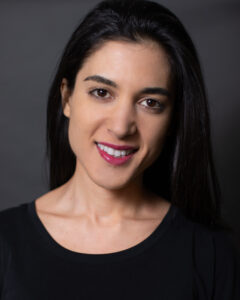DSI Alumni Ipek Ensari will Drive mHealth Innovation in New Role at the Icahn School of Medicine at Mount Sinai.
November 10, 2022

After six years at Columbia University, Ipek Ensari is joining the faculty of the new Hasso Plattner Institute for Digital Health at the Icahn School of Medicine at Mount Sinai as Assistant Professor. She is the first official faculty recruit at the new Windreich Department of Artificial Intelligence and Human Health, formed with the goal to infuse machine learning and AI driven decision making throughout the Mount Sinai Health System.
Ensari’s work uses machine learning, data science, and user-driven mobile health apps (mHealth) to better interpret women’s health. In her new position, Ensari will collaborate on multiple mHealth projects, in addition to spearheading her own recently awarded NIH R01 grant. “I’ll be focusing on methodology and the quality of the self tracking data,” Ensari explains. “How do we improve the accuracy and reliability of how we collect and process self reported data? How can we better measure how people are responding to treatment? I’ll also be looking at how to best aggregate, analyze, and summarize passively collected data, such as physical activity, heart rate, sleep patterns, and more. “
Ensari received her Ph.D. in Kinesiology & Community Health at the University of Illinois Urbana-Champaign before coming to the Columbia University Medical Center for a postdoc in Cardiovascular Behavioral Health. She joined DSI as part of its first cohort of Post Doctoral Fellows in 2018. Two years later, she became an Associate Research Scientist at DSI, and Director of the Data Scholars Program. Ensari credits her time at DSI with preparing her for new role. “It was during my postdoc that I began to investigate mobile and digital health technologies and the associated machine learning techniques. I am grateful for the freedom that DSI gives its Fellows to pursue interests and passions. DSI will support you and connect you to advisors and mentors from different fields. You work with both computational faculty and subject matter experts.”
As Director of the Data Scholars Program, Ensari served as a connecting point between faculty, industry, and students, finding the right matches to address a variety of problems. “The program enabled me to see the network of research collaborations — university wide— from a birds eye view,” she says. “Mentorship, making executive decisions, reviewing research projects, giving guidance to faculty – I wore a lot of hats and really enjoyed it.“
During her time at Columbia, Ensari also co-produced Endomic, a satirical and educational film about endometriosis, which premiered at the Slamdance Film Festival in February last year. The film “was a test of my ability to describe my research to a general and large audience outside of academia,” Ensari observed, “and it improved and informed how I think about my research. The people I talked to highlighted how much work they do to collect their own data to supplement their health care; this really validated my research emphasis on using direct patient input to augment traditional clinical sources.”
Ensari is eager to expand her work at Mount Sinai. “The focus and mission of the department is a perfect fit,” she concludes. “I’m looking forward to collaborating with others and discovering all the resources to build our research program.”
— Karina Alexanyan, Ph.D. and Shane Tan